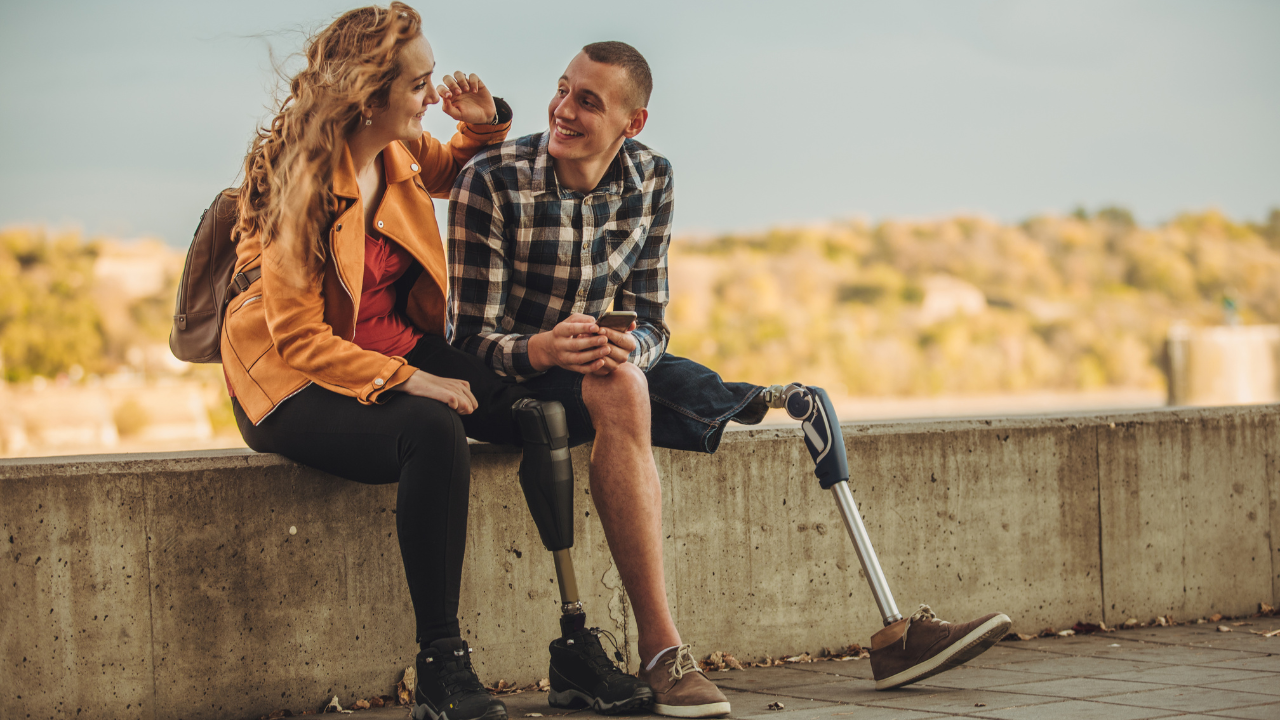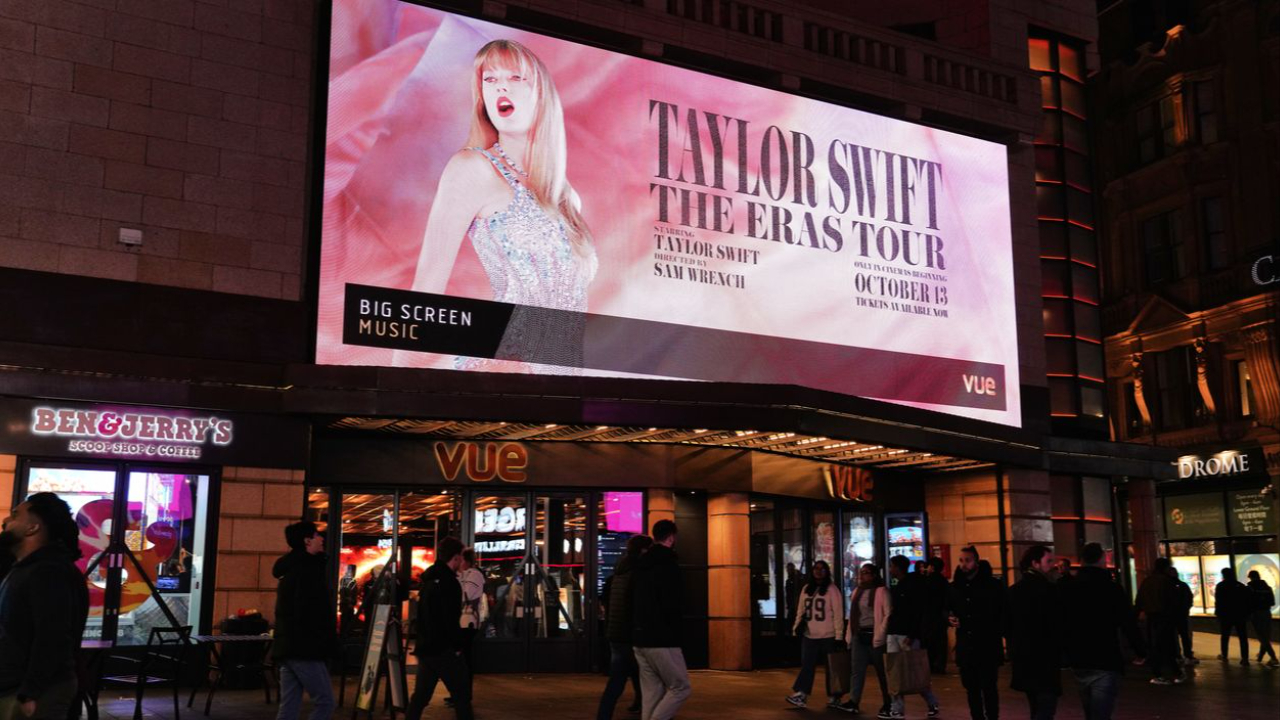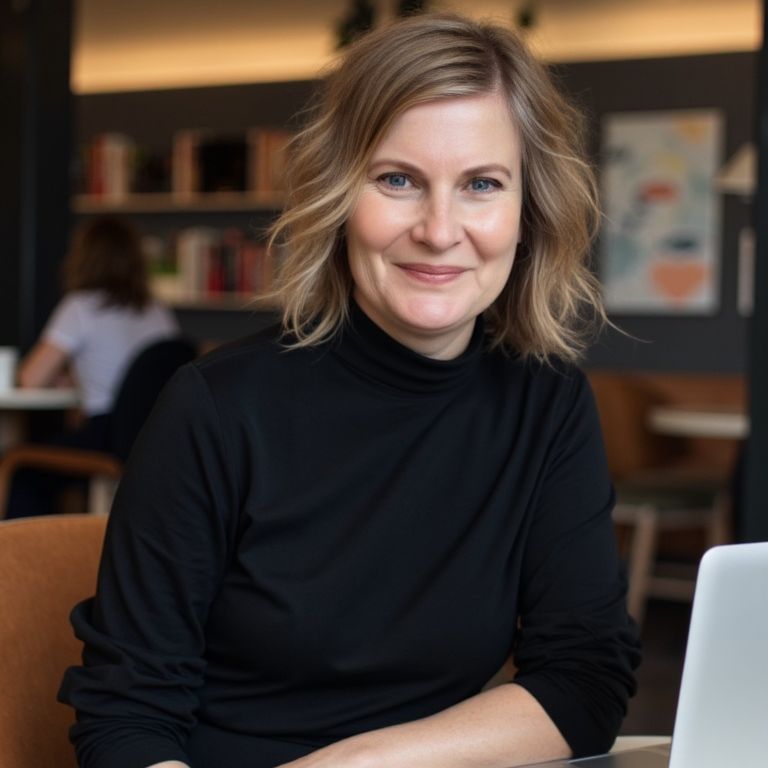Visibility as an HSP with PTSD
Jul 29, 2022
I'm a highly sensitive person (HSP) who has lived with post-traumatic stress disorder (PTSD) most of her life. 'Highly sensitive' means I have sensory processing sensitivity. If two people talk to me at the same time for example, my head feels like it's going to explode. (Not a great thing when you're a parent to young children who like you to witness their every thought and action.) I need dead silence to do deep work. Often the television feels too much for me. I have to take regular breaks from sitting in front of a computer and I can't work for extended periods in artificial lighting. So basically, I can't work in a regular office or job.
Being a child of the 70s and 80s I had no idea about this growing up, and so, like all HSPs, I unconsciously developed a series of coping mechanisms. But the combination of being an introverted HSP, an empath, and having PTSD was ultimately too much, even for my excellent coping strategies, and eventually I became very sick with chronic fatigue.
I was already a practising yogini and yoga teacher at that time, so I turned to pratyahara (complete sense withdrawal) for months on end to aid my recovery. I had to rewire my brain and nervous system, drop all my A-type stories about what self worth and success looks like, and become very comfortable with saying no (putting my body's needs before everything else).
I started working online because after a few aborted attempts at returning to a regular office job, I realised I only had two options for taking care of myself financially; apply for the disability pension, or try and find a way to work very differently. I opted for the latter.
I faced this decision in 2008 and after about six months of working completely differently to every person I'd ever met (eg; working for an hour and then sleeping for three hours, prioritising intuitive guidance - even when I didn't understand it - and using my body as my barometer for making decisions), I stopped having major relapses of chronic fatigue and started to stabilise my energy, time and resources.
For a long time, I thought this meant I'd completely recovered from chronic fatigue. But last year we started renovating our home and men I don't know have been moving in and out of our house at all hours.
To put in context how triggering this can be for someone with PTSD, a few years ago I had a teenage boy knock on our front door, asking for a donation to the Surf Life Saving Society. He was perfectly pleasant and did not pose a threat to me in any way.
Nevertheless, the minute I heard the knock, my nervous system was on alert. By the time he'd completed his sales pitch and I'd managed to get him to leave, I was near catatonic. I was shaking as I walked to bed and stayed there for the next 24 hours to stabilise myself. It took another few days of clearing and healing work to start to feel settled in my nervous system and to stop the mental and emotional chaos swirling in my head.
So, having random men in my house all the time is far from an ideal situation for me. Nevertheless, it has alerted me to something I hadn't been consciously thinking about; how intimately connected chronic fatigue is with both PTSD and sensory processing issues and the different ways I've approached them to make my way through life.
The PTSD is something I feel confident in navigating and continuing to heal, slowly but surely. The sensory processing on the other hand, is less something I'm healing from, and more something I've learned to manage. Should I step out of my managed environment, I wouldn't be surprised if I had a chronic fatigue relapse.
I share this because the great many coping strategies I've developed to maintain rhythm and normality in my life, are the same strategies that have helped me build The School of Visibility (SOV) and maintain a good level of visibility consistency. I know many people in the SOV community have similar backgrounds or experiences to me, so I share these things to support us all in celebrating the steps we've all taken and to build our collective wisdom around how to build a business and be visible despite the hurdles we might face.
Here are just some of the things I've done to build my business slowly, steadily and sustainably as an introverted, empathic HSP with PTSD:
- I moved to an introverted city with very few population pressures which means I can make my way through life without any undue, external stresses
- I started working in a garden studio filled with natural light and air and I often work on my deck or in my garden or anywhere that connects me to trees, sunlight, and grass
- I really like engaging with people as long as I don't feel overwhelmed by too much interaction and have plenty of time to myself so I convene 1:1 client meetings, staff meetings, and interviews on a Tuesday and group coaching on a Thursday. In between I work quietly on my own
- Team SOV has never had more than five people. I generally choose team members that are self reliant introverts who are happy working in ways that don't involve a lot of face to face meeting time
- I automate as many work tasks as possible, especially my visibility related tasks, which means the business can stay visible even if I'm in no state to be personally showing up or speaking up
- I worked on clearing my visibility blocks so I wouldn't feel embarrassed or ashamed about showing up just as I am. Empathic me tends to cry very easily. I used to think that was something I needed to hide. Now I cry without shame. Whether that's in the middle of a speaking gig, on a live stream video, while teaching, or while recording an audio message, emotions are the colour of life. I'm grateful I get to experience them
- I don't jump at the next shiny object that might improve my visibility. I wait and watch and feel into my body and let my intuition guide me in making choices that will work for me. I wait until I feel that my visibility efforts on a specific platform are stable and feel easy and effortless. Then, and only then, do I even consider adding another platform to my visibility ecosystem
- I look for joyful forms of visibility (joy, for me, coming first and foremost from writing. Obviously I prefer long form pieces of writing. This isn't the most popular form of online visibility and it isn't going to move the needle in the same way that becoming a video star on Tiktok will, but it's what works for me and at this stage in my life, that has to be enough)
- Because I don't have a Plan B for my career, every decision I make is prefaced on the understanding that I'm playing the long game in business. I simply can't afford to burn out or push myself into unsustainable ways of being and working
- I generally work in silence and when I feel sociable, I work from a cafe (engaging only with the staff about food and beverage orders of course!). The noise can be a problem in a cafe so I choose my cafes carefully, have headphones at the ready and I'm quite deliberate about the kind of work I do while there
- Whenever I feel like overwhelm might be about to rear its ugly head, I stop, sleep, sit quietly or lie on the grass and look at the trees and the sky. Pratyahara (aka 'powering down') is one of my key strategies for keeping my energy on an even keel most of the time
- I've become really good at setting healthy boundaries around my time. I don't over-schedule myself socially, I don't over-schedule my kids' lives so there's plenty of time for creative play and family time in the afternoons and on the weekends, and I don't over-schedule my work calendar
- I am perfectly comfortable with building my business at a pace that works for me, irrespective of what others might think is an appropriate pace
- I drop everything when I notice any level of adrenal activity in my body. I don't start back up again until that has passed
- I do emotional and energetic clearing work most days and certainly when I notice resistance in my body or in response to something that's happening in my business or life
- On a good number of evenings through the week you'll find me in bed by 8.30pm quietly reading a book, which means I average 10 hours of sleep each night. (My kids and I generally wake at 8am each weekday morning, making our way slowly into the day with very little rush or sense of urgency. We're a short drive from school so we easily make it by the 9.10am bell.)
Finally, my high level of responsiveness to my environment, including other people's needs and emotional states, means that when a person comes into my awareness, I'm scanning their energy, listening to the pitch of their voice, feeling their emotions and generally deciphering all the information they're not conveying in words. (I didn't learn to do this, it's been something I've done my whole life. Like smelling someone's perfume when they walk past you.) That makes me good at facilitating emotional and energetic healing and group coaching, which is good news for SOV students and clients.
On the flip side, it created an interesting visibility challenge which I'm not alone in facing. The challenge looked like this; over the years, each time someone has expressed a need I felt I could meet, I wondered whether I ought to pivot my business or change my messaging to meet that need. For a long time I thought this changeability might be about consistency and commitment (and it was). What it was also about, was being so used to changing myself to meet other people's needs that I wasn't sure how to stand in my own sense of self. That made it difficult to focus exclusively on what I'm best able to offer the world.
So I've had to teach myself to stand in the centre of my own life and make my way through the world from there. I did that by building my awareness of my own habits, by deconstructing patriarchal conditioning which taught me to de-centre myself, and by consciously minimising my sensory input (fewer distractions and demands meant there was less likelihood that I'd be pulled into responding to needs that didn't fit with the SOV mission).
I've taught myself to anchor my attention in my body, rather than in my environment, and proceed from there. I'm still aware of my environment and sensitive to it, but in a much healthier way. Which makes me more like the tree that stays rooted while swaying with the wind, than the ship without a rudder that gets knocked off course with every current and wave. I'm sure if this is possible for me, it's possible for every HSP, empath, introvert and person with PTSD.





